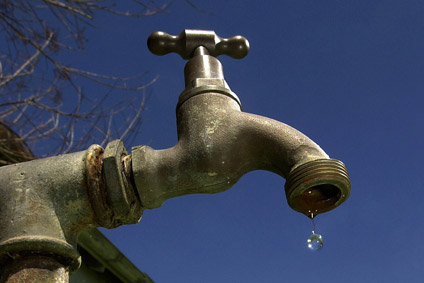Elderly women in Bulawayo are being forced to relieve themselves in nearby bushes at night due to the city’s ongoing water crisis, while other residents have devised creative coping methods, such as throwing stones at neighbours’ houses to signal the restoration of water supply.
The practice of throwing stones has become necessary because the Bulawayo City Council (BCC) often resumes water supply late at night, when most people are asleep, according to discussions during a Community Engagement meeting hosted by the Zimbabwe Union of Journalists (ZUJ) at the Bulawayo Media Centre on Thursday.
The meeting, aimed at addressing the escalating concerns over water shortages, revealed the extreme conditions residents face as they struggle to access basic water supplies.
Thamsanqa Ndlovu, Chairperson of the Residents Charter Africa Initiative, highlighted the gravity of the situation, emphasizing how the shortages are not only disrupting daily life but also hindering societal development.
“Residents have encountered numerous challenges, and they have lost valuable man-hours,” Ndlovu said. “A schoolchild can spend an entire day in a queue searching for water. Self-employed people also waste hours in these queues. These are lost hours that could contribute to societal development. Hygiene issues are arising, and lives have been lost in Luveve due to water-related problems.”
In some suburbs, such as Pumula, elderly women, referred to as ‘ogogo,’ wait until dark to relieve themselves in nearby bushes.
“We visited 40 households, and the elderly women told us they wait until nightfall to use the bush as a toilet,” Ndlovu reported, urging the BCC to take immediate action to address the issue.
In New Magwegwe, residents have resorted to throwing stones at their neighbours’ homes late at night to alert them when the water supply is restored.
Phumulani, a resident of the area, voiced his frustration over the water schedule.
“It’s frustrating that water is only restored late at night. Some residents stay up until 1 or 2 a.m. filling buckets, while others sleep through it. Now, we throw stones at each other’s houses to wake people up so they can store water,” he said.
The water shortages have also led to severe sanitation problems. Ndlovu recounted an incident in Pumula where a sewer blockage persisted for over a month due to the lack of water.
When BCC officials investigated, they found that a cow had fallen into a sandpit, further complicating the issue.
BCC engineer Siphiwe Mareya explained that the city’s water distribution is based on a gravity system, not pumps, and water is typically restored in the evening when demand is lower.
“Water flows through a gravitational system. We don’t pump water from reservoirs. We have about six supply reservoirs, including Criterion and Ncema treatment plants,” Mareya said.
She acknowledged that this approach has led to erratic water availability, with some neighbourhoods receiving water late at night or the following day.
“The idea was to open water in the evening when demand is lower, allowing it to cover more ground. But the unpredictable schedule has left residents waiting up all night to fill their buckets,” Mareya explained.
The frequent opening and closing of valves due to the intermittent supply further exacerbates the problem.
“Our system is designed for continuous operation, but when we open and close it frequently, it disrupts the flow. The system doesn’t remember where the water stopped, so when it’s reopened, it has to start from scratch,” she added.
Mareya also addressed complaints that low-lying areas receive more water, explaining that while these areas may retain some water in their pipes, high-lying areas often face long delays.
“People believe we favour certain areas, but it’s not by design. The system resets each time we open it, which is why opening water at night is not intentional,” Mareya concluded.

